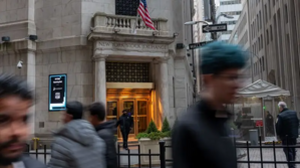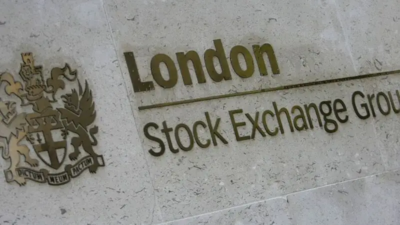Why another unexpectedly hot jobs report could derail markets
A version of this story first appeared in CNN Business’ Before the Bell newsletter. Not a subscriber? You can sign up right here. You can listen to an audio version of the newsletter by clicking the same link.
Wall Street was taken aback by the US labor market’s resilience in January. Another unexpectedly hot report could shake things up again.
The January jobs report showed that the US economy added a stunning 353,000 jobs that month and the unemployment rate stayed at 3.7%. That all but cemented investors’ belief that the Federal Reserve won’t cut interest rates at its March policy meeting, and, coupled with hot inflation data, raised doubts about whether the Fed would cut rates at all this year.
Those fears waned after Federal Reserve Chair Jerome Powell indicated in his congressional testimony this week that he’s not taking rate cuts off the table. Investors cheered Powell’s signal, helping push the S&P 500 index to close at a record high Thursday.
“We believe that our policy rate is likely at its peak for this tightening cycle,” Powell said on Wednesday. “If the economy evolves broadly as expected, it will likely be appropriate to begin dialing back policy restraint at some point this year.”

Still, the central bank hasn’t made it clear when it will begin paring back rates, keeping investors on edge ahead of key data releases. Economists expect that the US economy added 200,000 jobs last month, according to FactSet estimates. While far below January’s searing tally, that estimate would be a continuation of a historically strong labor market that’s stayed resilient against interest rates at a 23-year high.
Traders largely expect the Fed will begin cutting rates in June or July, according to the CME FedWatch Tool. But those expectations could shift again depending on how the latest labor data looks, some investors say.
“There’s no wiggle room for investors — even a slight upside surprise to job creation might rekindle fears about interest rates needing to be ‘higher for longer,’” wrote BeiChen Lin, Investment strategist at Russell Investments, in a Monday note.
It’s not just jobs data on Wall Street’s radar. The January Consumer Price Index is due next Tuesday, and investors will watch closely, especially after price hikes eased less than expected in January.
“I would like to see inflation move down, a couple more data points, so we can be confident on that sustainable path to 2%,” Cleveland Federal Reserve President Loretta Mester said Thursday on CNBC, adding that she believes more moderation in areas like employment growth could put the Fed in a position to cut rates later this year.
Some economists are looking even further ahead to the Fed’s Summary of Economic Projections, slated for release at its March policy meeting. More specifically, investors are looking to the Fed’s dot plot, which charts the interest rate expectations over the next few years from each member of the Federal Open Market Committee.
Central bank officials in December penciled in three quarter-point rate cuts for 2024 in their dot plot, which is released every other month.
“Dots that point to one or two cuts rather than the three the market is anticipating may surprise folks, with incoming data likely to move the needle following hot January [labor] data,” wrote José Torres, senior economist at Interactive Brokers, in a note on Wednesday.
Big changes for Apple, Google and other tech giants: Europe’s sweeping law goes into effect
Europeans using Apple, Google and other major tech platforms woke to a new reality Thursday as a landmark law imposed tough new competition rules on the companies — changing European Union citizens’ experience with phones, apps, browsers and more.
The new EU regulations force sweeping changes on some of the world’s most widely used tech products, including Apple’s app store, Google search and messaging platforms, including Meta’s WhatsApp.
And they mark a turning point in a global effort by regulators to bring tech giants to heel after years of allegations that the companies harmed competition and left consumers worse off, reports my colleague Brian Fung.
The broad obligations apply only to the EU, which could leave tech users in the United States and other markets looking longingly at some of the features Big Tech is rolling out in response to the European directive.
In one seismic shift to comply with the law, Apple said it plans to let EU users download iPhone apps via third-party app stores — easing its grip on iOS for the first time since the App Store’s debut 15 years ago.
In another significant change, Google said it will alter search results to drive more traffic to independent comparison-shopping or travel-booking sites, instead of directing users toward Google Flights or other tools it owns.
Google will also allow Android users to select a preferred browser and search engine from a menu of options when first setting up their devices, rather than defaulting users to Google’s Chrome browser and search engine. That could give a leg up to rival browsers such as Opera or Mozilla’s Firefox and competing search engines including DuckDuckGo or Microsoft’s Bing.
Read more here.
Customers are pulling their cash from NYCB, but it’s no bank run
Customers of New York Community Bank (NYCB) pulled $6 billion worth of deposits between February 5 and March 5, leaving the bank’s deposit base 7% lower at $77 billion, according to my colleague Elisabeth Buchwald.
However, the pattern is not indicative of a bank run, which these days can drain a lender of funds in mere hours. Shortly ahead of its demise, depositors at Silicon Valley Bank tried withdrawing $42 billion in one day over fears they wouldn’t be able to access their funds if the bank failed.
NYCB provided the updated figures on an investor conference call Thursday morning after it announced it secured a $1 billion Investment from former Treasury Secretary Steven Mnuchin’s firm, Liberty Strategic Capital, among other private equity companies.
Before the company disclosed in a filing last Thursday it had identified “material weakness” in the company’s controls, there weren’t significant changes in the bank’s level of deposits, said Alessandro DiNello, NYCB’s outgoing CEO, appointed just last week.
“Friday was not a great day,” he said. “Over the weekend, Monday and Tuesday deposits were strong again.”
Read more here.
Maybe You Like
London Stock Exchange urged to do more to hold onto retail traders
The UK stock market needs to improve investor communication and engagement in order to retain its individual traders, according to a report from online trade and investor provider CMC Markets. ADVERTISEMENTUK retail investors are increasingly...
Hargreaves Lansdown rejects private equity takeover bid
The UK investment platform says the offer from a group including the Abu Dhabi Investment Authority undervalues the firm. ADVERTISEMENTHargreaves Lansdown has rebuffed a takeover proposal worth £4.67 billion (€5.48 billion) made...
Ferrovial set to offload UK regional airports amid Heathrow deal uncertainty
Ferrovial is planning to sell its stake in three UK regional airports amid difficulties in finalising its £2.4bn sale of a 25% stake in Heathrow. ADVERTISEMENTSpanish infrastructure company Ferrovial is reportedly putting up for sale...



























